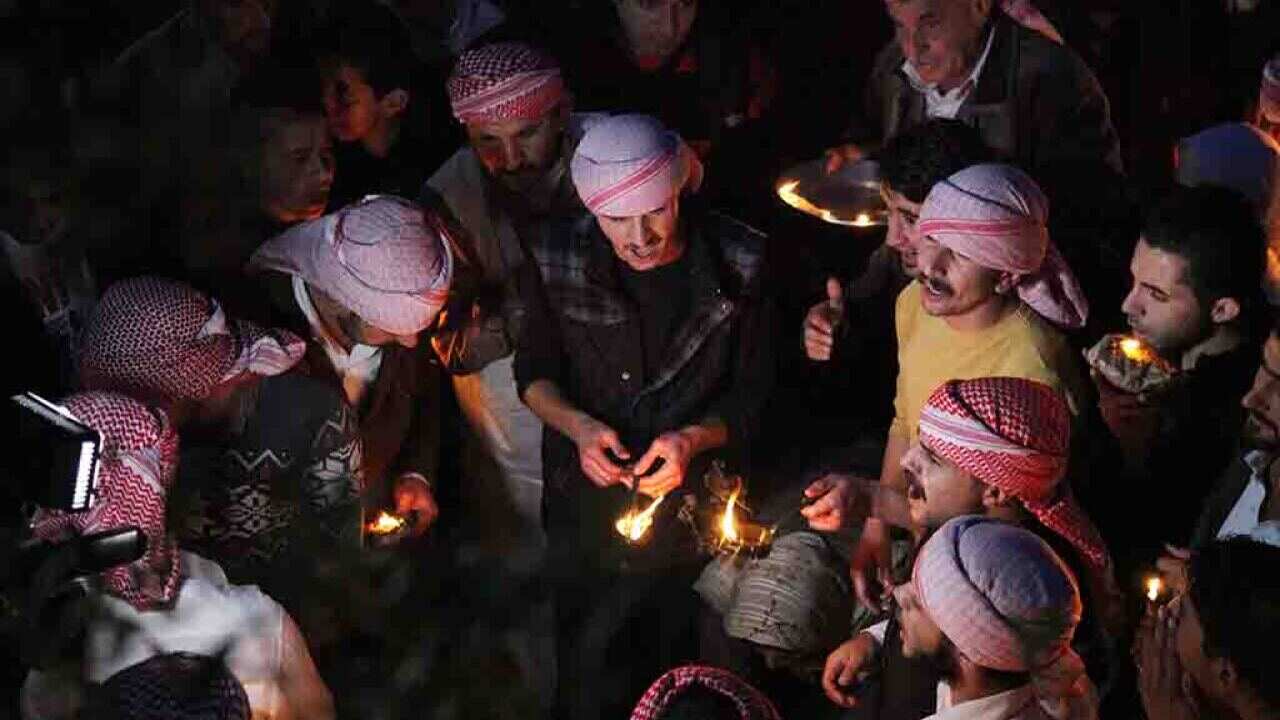It has been eight years since Islamic State (IS) launched a campaign of killing and abduction against the Yazidis in Iraq, with thousands of women, men, and children still missing.
The pain endured during the dark period remains etched on the mind of Yazidi woman, Zahreh Mahmoud, who arrived in Australia as a refugee in June 2018 with her four daughters and son.
At the time the family were granted a visa to Australia, she said her younger son, then aged 11, was still being held captive by IS.
After the defeat of IS in northeast Syria in 2019, he was freed, having been held captive for a total of five years, she said.
But her husband is still among the thousands that are missing.
SBS Kurdish spoke to Mrs Mahmoud on the eighth anniversary of the genocide on the Yazidis carried out by IS.
Fighting back tears, she said her health was not the best, especially her mental health.
“I have not seen my son for the past eight years; I can’t explain how much I miss him. He is the only one left behind," Mrs Mahmoud said.
Prior to the international border closures due to the COVID-19 pandemic in 2020, he, his grandmother and his uncle were to be interviewed by Australian immigration officials for the second time in Erbil, she said.
“But that never happened due to COVID-19 and border closures. They are still waiting to be interviewed,” Mrs Mahmoud said.
"Their fingerprints have been taken, that’s all. When he was freed from IS, he was still a minor, hence he was staying with my mother and brother in a refugee camp in Kurdistan Region, Iraq.
"Because he was a minor, we applied for a visa for my mother, my brother and his family as well to come to Australia.”
Mrs Mahmoud is now calling on the Albanese government to bring them to Australia.
"I am pleading with the Australian government to reunite my son, my mother, and my brother and his family with us here in Australia," she said.
"It has been three agonising years in waiting. I am depressed and my mental situation is not good, I am mentally not in a good place now."
I feel for him when he’s unwell, I miss him very much, my heart hurts when I think of him, I just want to give him a big hug.
There are an estimated 360,000 Yazidis stranded in camps for internally displaced persons (IDPs) in the Kurdistan Region (KR) in Iraq.
According to Mrs Mahmoud, many feel they are awaiting a death sentence, suspended in limbo, and resigned to permanent incarceration.
“Every day, a tent burns, and people burn inside it, they are very afraid that one day it will happen to them," Mrs Mahmoud said.
A Department of Home Affairs spokesperson said while the department did not comment on individual cases, the government was committed to generous and flexible Humanitarian and Settlement Programs (HSP).
Such programs met Australia’s international protection obligations and positions Australia as a global leader in international resettlement efforts, the spokesperson said.
"A program of 13,750 places in the 2022–23 Humanitarian Program will ensure we can provide permanent resettlement to those most in need, and provide appropriate support for the travel and resettlement of refugees and others requiring Australia’s protection," the spokesperson said.
SBS Kurdish understands that between 1 July 2015 and 31 July 2022, 4,383 Yazidis arrived in Australia holding humanitarian visas and entered the HSP.
Of these, 688 initially settled in Armidale.








